The Centre, in an affidavit filed before the Supreme Court, said that it brought amendments to the Waqf Act, 1995, to prevent abuse of waqf legislation which resulted in the encroachment of government properties, apart from ensuring that the Waqf Boards in the country are properly administered and function with transparency.
"It is submitted that there have been reported misuse of waqf provisions to encroach private properties and government properties. It is really shocking to know that after the amendment brought in the year 2013, there is a 116 per cent rise in auqaf area," said the preliminary affidavit filed by the Union Ministry of Minority Affairs.
The Centre, in its reply document filed before the top court, said that it was found that most of the Waqf Boards have been functioning in the "most non-transparent manner" and have either not uploaded the details in public domain or have uploaded partial details.
"In an era of transparency, it is absolutely necessary that all details concerning waqf/waqf boards be uploaded in Waqf Asset Management System of India (WAMPSI) portal," it contended.
The Union government said that under the old regime, due to the absence of adequate safeguards, government properties and even private properties were declared as waqf properties.
"The provisions of Sections 3A, 3B and 3C take care of the said situation which has been prevailing since several decades. It is submitted that there are startling examples whereby the government lands or even the private lands were declared as waqf properties," it said in the affidavit.
The Union government said that the Waqf (Amendment) Act, 2025, was passed with the objective of modernising the management of waqf properties in India through transparent, efficient and inclusive measures. It argued that the reforms introduced are directed solely at the secular and administrative aspects of waqf institutions – such as property management, record-keeping, and governance structures – without impinging upon any essential religious practices or tenets of the Islamic faith. The affidavit highlighted that despite there being a regime of mandatory registration of all kinds of waqf, including ‘waqf by user’, making registration mandatory, individuals or organisations used to claim private lands and government lands as waqf including under 'waqf by user' which not only lead to deprivation of valuable property rights of individual citizens but similarly unauthorised claims over public properties.
"While registration of all kinds of waqfs (including ‘Waqf by user’) has always been mandatory, the legal regime never required the waqf deed as a mandatory condition. In other words, it was mandatory to register ‘Waqf by user’ even in the absence of a waqf deed by giving other details for more than 100 years."
Referring to the recently introduced Section 36(1A), the Centre said that the 2025 amendment provides that a waqf may now be established only through a valid deed of waqf. It clarified that the amendment to Section 36 has not interfered with the status of existing/registered auqaf by user, and any existing property which has been registered as waqf by user will retain its status.
The Union government said that a proviso has been inserted in Section 3 by the Waqf (Amendment) Act, 2025, making it clear that the mandatory requirement of a ‘waqf deed’ applies prospectively from the date of the 2025 amendment i.e., if any new waqf is created after April 8.
"Waqfs by user registered before the amendment would therefore continue to be treated as waqf in terms of the proviso,” the Centre said.
The preliminary reply document filed by the Union government said that before introducing the Waqf (Amendment) Act, 2025, there has been a detailed executive level and Parliamentary level exercise in order to understand the problems plaguing the previous statutory regime, the consequences, and the appropriate measures that were required to remedy the same.
The Centre contended that the "primary religious right being the right to make a dedication is not interfered with, and neither is the administration of any specific waqf interfered with as the same continues to be vested with the mutawalli as per the purpose behind such waqf".
The affidavit said that it is a settled position in law that constitutional courts would not stay a statutory provision, either directly or indirectly, and will decide the matter finally, as there is a presumption of constitutionality that applies to laws made by Parliament.
"While the Hon'ble Court would undoubtedly have the power to examine the constitutionality of the law, at the interim stage, the grant of an injunction against the operation of any provision of the law, either directly or indirectly, would be violative of this presumption of constitutionality which is one of the facets of the delicate balance of power between the different branches of the State,” it added.
In the hearing held on April 17, a bench headed by CJI Sanjiv Khanna had granted a week’s time to the Centre and state governments and the Waqf Boards to file their preliminary reply to the petitions challenging the validity of the Waqf (Amendment) Act, 2025.
The Bench, also comprising Justices Sanjay Kumar and K.V. Viswanathan, had taken on record the assurance given by the Union government that it would not de-notify provisions related to 'waqf by user' or include non-Muslim members in the Waqf Board.
Posting the matter for further hearing on May 5, the CJI Khanna-led Bench clarified that the hearing fixed on the next date will be a preliminary hearing and, if required, interim orders will be passed.

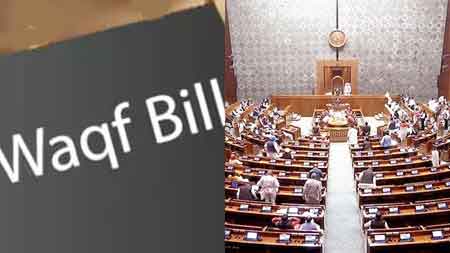
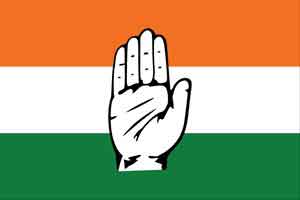
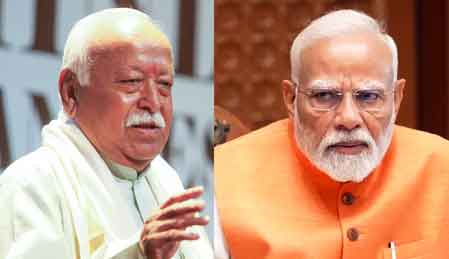
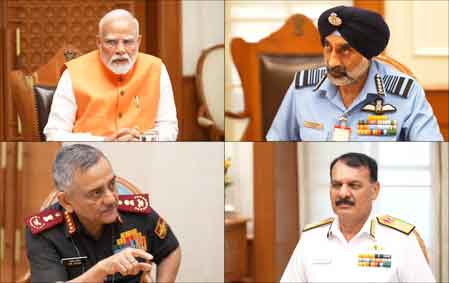
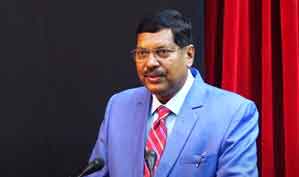


‘Pahalgam incident deeply disturbing & tragic’: Former Pakistan PM Imran Khan
Former Pakistan Prime Minister Imran Khan on Tuesday termed the Pahalgam terror attack as disturbing & tragic and also condoled the victims and their families.
Congress finally deletes 'Gayab' post targeting PM Modi after outrage
Under fire from the BJP over its social media post targeting Prime Minister Narendra Modi, Congress finally, on Tuesday, took down the controversial post.
Guterres calls EAM Jaishankar, Pak PM Sharif; stresses pursuing justice in Pahalgam terror attack
Secretary-General Antonio Guterres stressed the importance of pursuing justice in the Pahalgam terrorist attack while speaking with External Affairs Minister (EAM) S Jaishankar and Pakistan’s Prime Minister Muhammad Shebaz Sharif, his Spokesperson Stephane Dujarric said on Tuesday.
Congress organises ‘Save Constitution’ rallies across NE states
The opposition Congress has been organising ‘Samvidhan Bachao’ (Save Constitution) campaign in the northeastern states. Claiming that the Constitution is in danger under the BJP-led Central government, the opposition Congress held a massive rally in Agartala on Tuesday.
RSS chief Bhagwat meets PM Modi after security huddle: Signs of a hard-hitting response in the works
In a significant political development, RSS chief Mohan Bhagwat met Prime Minister Narendra Modi at his official residence at 7, Lok Kalyan Marg on Tuesday evening.
What PM Modi's free hand to armed forces against terror means for cross-border action?
Prime Minister Narendra Modi’s unambiguous message during a high-level security meeting - ‘India is determined to deliver a crushing blow to terrorism’ - marks more than just a strong statement of resolve.
Justice BR Gavai appointed as next Chief Justice of India
Justice Gavai was elevated as a Judge of the Supreme Court on May 29, 2019. Appointed as Additional Judge of the Bombay High Court in November 2003, he became a permanent Judge in November 2005.
Three more Bangladeshi nationals held in Tripura
The Tripura Frontier of the Border Security Force (BSF) on Tuesday apprehended three Bangladeshi nationals, including a woman, for illegally entering India, officials said.